Sacred Bulls
I have read your magazine for years, and I was completely taken aback to see such a thing as this open letter to the pope (Summer 2000).

I have been a Tibetan Buddhist/ dzogchen practitioner for ten years and Zen before that. BUT I recently converted to Catholicism. Perhaps Dr. LaFleur is unaware that the church—yes, the church—is not opposed to birth control, only to artificial methods. I remember when I was a young hippie that natural birth control was what everyone was supposed to do. The Catholic church supports this and teaches it. I also find it alarming that Dr. LaFleur continually presumes to speak for “many Catholics.” As a longtime Buddhist practitioner and a Catholic, I believe it is important always to try to work with each other and all the world—after we have worked on ourselves.
Overpopulation is not just a Catholic problem or a problem of “fecundity” thinking—it is a global problem. I felt, unfortunately, a certain humanity lacking from Dr. LaFleur’s article. An article about too much humanity that lacks humanity. Maybe that’s just Dr. LaFleur’s kind of Buddhism.
We must pull together as a planet and work with our differences, not reinforce them—hopefully, dialogue between Buddhists and Christians will start with recognizing our common humanity. Given the tone of your article, Dr. LaFleur, how do you expect the pope to respond?
Katherine Ingram
Idaho Falls, Idaho
Having been raised Catholic, but presently practicing Buddhism, I was immediately drawn to this article. Interestingly enough, although I personally agree with much of what William R. LaFleur says, I found at least some of his assumptions somewhat questionable.
Is it Buddhist to assume, as he does, that the language the pope uses, i.e. the “Culture of Death” as he sees it, will lead to “justification of literal crusades, the murder of heretics, inquisitions, and purges”? Although this pope states his opinions rather strongly, perhaps assuming he speaks for God, he is, when all is said and done, pretty close to a pacifist on issues of war, racism, and violence.
On the other hand, it is good to see Dr. LaFleur call the pope on the carpet when he addresses the world community as if we are all under the authority of the “Mother Church.” I found it liberating, to see this in print. The pope’s slant on Buddhism as expressed in his writings shows a lack of knowledge of Buddhist concepts, and his writings on all world religions shows a man obsessed with the idea that his church has all the truth, period. This no longer flies with many modern Catholics.
Interestingly enough, like Buddhists, Christians do not have an authoritative opinion on birth control because it is not mentioned in scripture anywhere, Jewish or Christian. Many Christians are concerned about the population explosion, and it is good to hear a Buddhist challenging the pope’s position.
John Mooter
Cincinnati, Ohio
The author somehow fails to connect with what Catholicism is most concerned with. The Church rejects the manichaean refusal of sex, but restricts it as much as possible. For centuries the practice of confession reinforced the “transgressive” character of ordinary sex in people’s daily lives, except for marriage-reproduction. The heart of Roman Catholic religiousness lies in this propagation of a sense of guilt. Let me put it this way: the sense of guilt in Christianity is just as central as the sense of emptiness in Buddhism.
Your pope-critic also—and even more thoroughly—refuses to understand Catholic ecclesiology. The Catholic Church, of which the pope is the head because he is the vicar of Christ, is not a philanthropic or goodwill organization. It is the New Israel, the nucleus of human salvation.
Buddha, Dharma, Sangha, etc., are natural, not supernatural, in Catholic eyes. They may well be praiseworthy insofar as they accord with natural law, but they have no revealed aim that lifts them to the supernatural plane on which the Supreme Pontiff functions, with the implied assistance of the Holy Spirit. Your writer seems to be unable to think in Christian-Catholic terms. My point is not that Catholicism is right, but that anyone who deals with it ought to be able to think in Catholic categories, more or less.
Dr. Richard A. Webster
Berkeley, California
Dr. LaFleur responds:
Although proof that you are on the “Middle Path” does not come just by being challenged from two opposing directions, I note that Ms. Ingram chides me for being too critical of the pope and Dr. Webster for not being critical enough. My point was that many religions, perhaps not without reason, were fecundist when feeling demographically challenged and our world was not yet over populated. Today, however, holdover forms of fecundism—clearly in evidence in the 1995 encyclical—are not only out of date but in need of scrutiny and criticism.

Additionally I proposed that Buddhists have a more defensible record on this score—but not necessarily on others. (A Buddhist “triumphalism” would be indefensible.) Mr. Mooter rightly notes that John Paul holds commendable views on other matters. Worrisome, however, are the papal letter’s theme of a fundamental spiritual warfare and its linking of abortion rights and contraceptive use to the “culture of death.” Having read the text, I do not so much pretend to speak for Catholics as much as with those Catholics who dislike such triumphalist language and long for a return to the approach of John XXIII.
Ms. Ingram dislikes the “tone” of my letter and about tone I probably have things to learn. Those of us, however, who cannot kiss his ring are handed a dilemma when the pope addresses a moral homily to “the world”—and especially if portions of it strike us as ethically off-base. Problematic too is Ingram’s view that the infamous “rhythm” method solves things. In 1956 H. L. Mencken quipped: “It is now quite lawful for a Catholic woman to avoid pregnancy by a resort to mathematics, though she is still forbidden to resort to physics and chemistry.” And the resulting suffering is real.
The Vatican’s censure of all contraceptives contributes to many unwanted pregnancies, to women’s agonies, and now to many unnecessary HIV deaths around the world. I wish I knew a gentle-toned way to object to that.
—William R. LaFleur
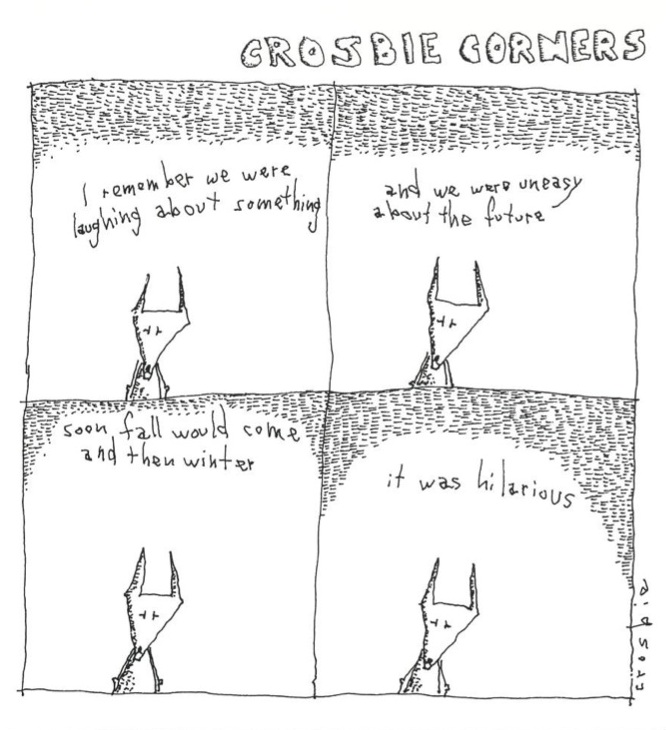
Truly Don’t Know
I read with interest “The Price of Faith,” your review of the book The Buddha From Brooklyn.
What astounds me to this day is that because someone has been identified as a tulku they are therefore thought to be spiritually advanced or refined. Really, this doesn’t follow. It’s not important what we may have been aeons ago but rather what we are now.

As far as Penor Rinpoche is concerned, it may be that he was impressed by the personal magnetism of both Catherine Burroughs and Steven Seagal.
All this really has nothing to do—in my mind—with enlightened mind. Neither magnetism, mind reading, nor “crazy wisdom” are indicative of anything except, perhaps, some few siddhis?
Truly I don’t know what enlightened mind is—what its size or shape or form or color is—and I am okay with that.
“Truly don’t know” suits me fine—or as Rumi said, “Fihi ma fihi”: What’s in it is what’s in it.
Susan E. Meyers
Jemez Springs, New Mexico
A First Approach
I want to express my appreciation for Jack Kornfield’s interview (Summer 2000). The forms of Zen practice I learned from my Japanese teacher, Taizan Maezumi Roshi, evolved as the best means of teaching young males thoroughly embedded in a traditional society. These young men probably reached adulthood with relatively little self-doubt and required a bit of knocking about by their teachers in order to open them to the teaching. There are still, of course, Zen students who fit this description. I believe there are more, both male and female, bewildered, at odds with their culture, and struggling with themselves on a spectrum between self-doubt and self-hatred.
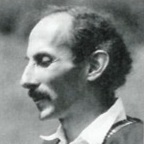
As a psychotherapist, I have learned the importance of encountering each client with the particular language and attitude that is most likely to open the gate to healing. Can I do less for my Zen students? Are the students I have just described best served by the rough handling traditionally meted out to Japanese monks?
Although he never articulated it to me, I believe Maezumi Roshi had an intuitive understanding of this. Over the 25 years I practiced with him, the training programs evolved from fierce—with a lot of shouting and hitting—to quiet intensity. Roshi remained deeply committed to his students, and I do not believe the change entailed any loss of intimacy, thoroughness, or effectiveness.
Chogyam Trungpa Rinpoche once remarked that if a student is too “serious,” the Peaceful Deities will make perfectly adequate teachers, but if a student is too “frivolous,” only the Wrathful Deities will be able to do the job. As dharma teachers in twenty-first century America, perhaps we should hold the Wrathful Deities in reserve and manifest the Peaceful Deities as a first approach.
Sydney Musai Walter, Sensei
Santa Fe, New Mexico
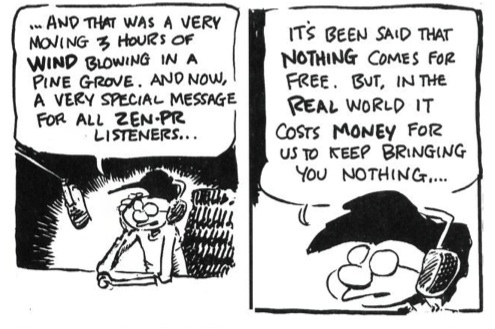
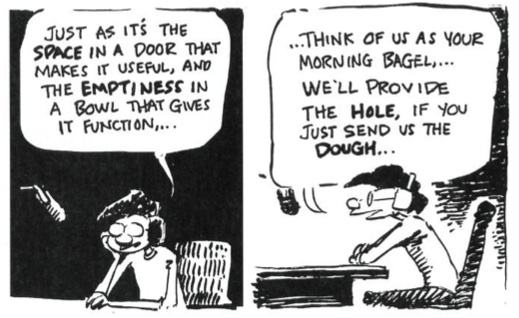
Thank you for delighting us readers with a very interesting interview with Jack Kornfield. Dr. Kornfield is not only a wonderful Buddhist teacher, but also a profound author and a skillful psychotherapist. I have sought comfort in his tape of A Path With Heart more times than I care to remember.
But most of all, I feel it was very important that finally a point was made about the importance of interpreting the dharma in our here and now; that is, our Western world, where so many of us have families, where life is plagued by stress, and where the traps of materialism are more than we can handle.
As Dr. Kornfield rightly points out, the West does not need an integration of psychology and dharma. As a psychotherapist I believe that one has nothing to do with the other. Rather, and for it to be significant, our practice has to be related to our everyday life. So, instead of just talking about dharma we will be able to become our dharma.
Marina Oppenheimer
Miami, Florida
Talking the talk
As a Zen practitioner and retired psychiatrist, I would like to respond to Ann Simpkinson’s “Riding Two Horses” (Summer 2000).
The teacher who is also a trained therapist is, by definition, well-grounded in both disciplines. The student, by definition, is not. Therefore, the fact that some teachers may be able to handle the dual role does not mean that the student-patient can.
A few questions: If the teacher has more than one student-client, sooner or later there will be talk that he is using a captive audience to feed his private practice. How will this affect his current and potential students? How does the student deal with situations in which he would like to talk with a therapist about something but does not feel comfortable telling his teacher, for example, the contentious issue of being an active member of a Western religion and simultaneously being a Buddhist?
If a teacher-therapist thinks it is possible to deal with these kinds of situations, I believe he is morally and professionally obligated to become a master of relationships. This learning should include the “enlightening” experience of entering into personal therapy, as I have.
As there is an increasing proliferation of various Buddhist-type meditation groups, there is the potential for a spiritual renaissance in the West. There is also a certainty that there will be more self-styled Buddhist spiritual healers with little or no training, who can “talk the talk but can’t walk the walk.”
Gregory Sarmousakis, M.D.
Wilmington, Delaware
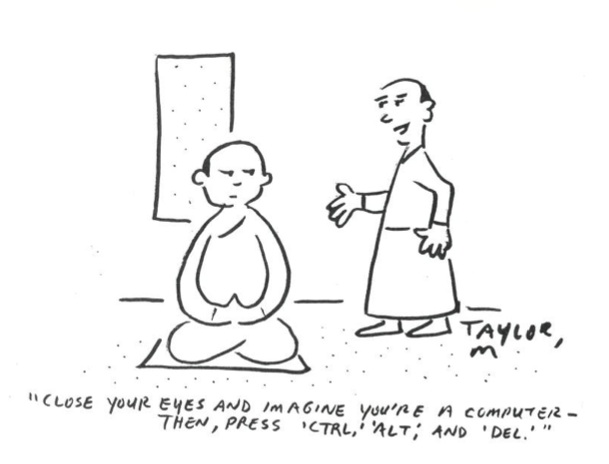
While I read with interest the comments of therapists and teachers, I noticed the experience of students was left out. I would like to make some comments from my experience as a student of two different paths: Sufi, and the Path of Self-Recognition, which includes one-on-one work. With my Sufi teacher, I initially idealized her, but as time went on found myself becoming critical towards her, then being critical of myself for my “nonspiritual thoughts.”
My second teacher explained that all of our issues from the past, what therapists call transferences and projections,would be placed on the teacher, the teachings, and the group. She explained this was a normal process of purification. I was then able to use these insights to work with the difficulties that arose with my other teacher.
Rod Birney, M.D.
Talent, Oregon
Thanks for the discussion on the problematic relationship between psychology and Buddha dharma in the West. Psychology is a necessary adjunct at some point for many of us. You can’t transcend an unhealthy ego, only disintegrate it. And I’m sure we’ve all met long-term dharma students whose neurotic and out-of-control minds seem to cause them more suffering than that of the average couch potato. One can’t help but think in such cases that if these unfortunates had spent their first two years of spiritual questing in intensive therapy then the last twenty years on the path would have been much more profitable.
But the crucial point here is that the goals of Western psychology and Buddhism are radically different. The Buddhist seeks enlightenment, a way out of samsara. Psychology attempts to make samsara more tolerable. The blurring of this distinction has left a large number of floundering Western Buddhists holding only a heart without a path.
Kip McKay
Berkeley, California